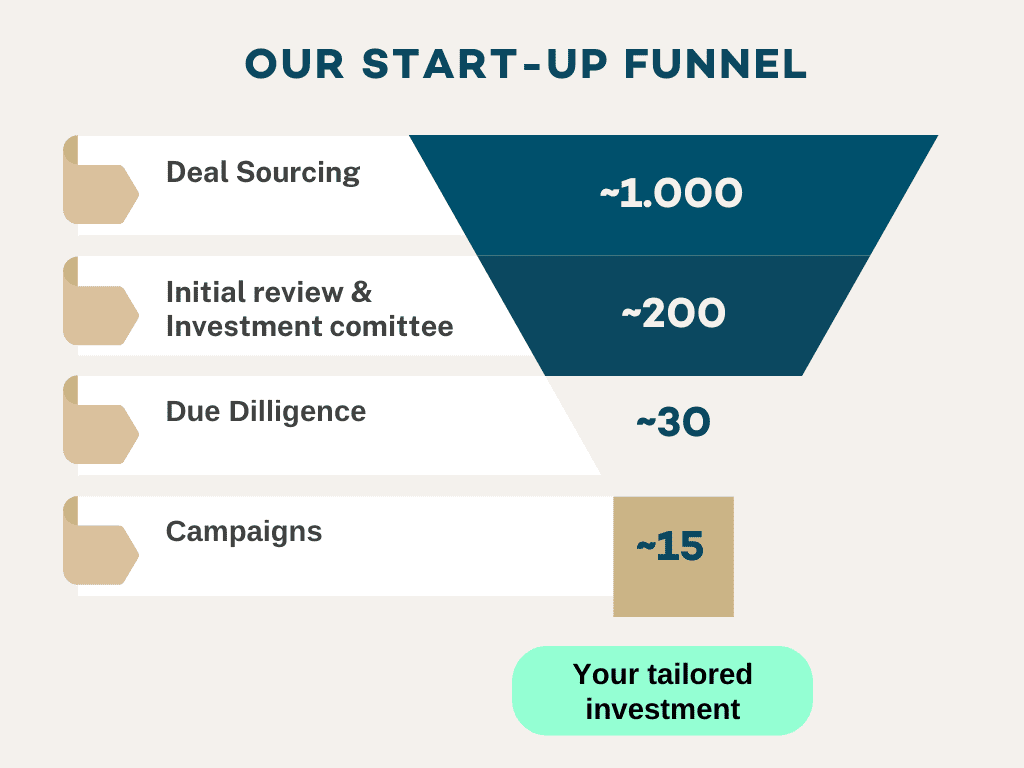Ready to Dive In? Assessing Startup Investments
So, you’ve decided to take the plunge into the world of startup investments. Congratulations! This is an exciting and potentially lucrative venture, but it’s important to approach it with caution and a good understanding of what you’re getting into. In this beginner’s guide, we will explore some key factors to consider when assessing startup investments.
One of the first things to consider when assessing a startup investment is the team behind the company. A strong and experienced team can make all the difference in the success of a startup. Look for founders who have a track record of success in their industry, as well as a diverse set of skills that complement each other. A team that is passionate, dedicated, and capable of executing on their vision is more likely to succeed in the long run.
Next, consider the market that the startup is entering. Is there a clear need for the product or service they are offering? Is the market already saturated with competitors, or is there room for growth and innovation? A startup that is entering a growing market with a unique offering is more likely to succeed than one that is entering a crowded market with little differentiation.
Financials are another important factor to consider when assessing a startup investment. Look at the company’s revenue projections, expenses, and profit margins. Are they realistic and achievable, or are they overly optimistic? A startup that has a clear path to profitability and a sustainable business model is a safer investment than one that is relying on constant funding to stay afloat.

Image Source:
In addition to the team, market, and financials, it’s important to consider the product or service itself. Does it solve a real problem for customers? Is it easy to use and understand? Is it scalable and adaptable to changing market conditions? A startup that has a strong product-market fit and a clear value proposition is more likely to attract customers and generate revenue.
Finally, consider the startup’s exit strategy. How does the company plan to eventually provide a return on your investment? Will they look to be acquired by a larger company, go public through an initial public offering, or continue to grow and generate profits for shareholders? Understanding the potential exit opportunities for a startup can help you make an informed decision about whether to invest.
Assessing startup investments can be a complex and challenging process, but with the right information and guidance, it can also be a rewarding one. By carefully evaluating the team, market, financials, product, and exit strategy of a startup, you can make more informed decisions about where to allocate your capital. Remember, investing in startups is not without risk, but with the right approach and due diligence, it can also lead to significant rewards. Good luck on your journey into the world of startup investments!
Get Started with this Beginner’s Guide!
Are you ready to dip your toes into the exciting world of startup investments? Whether you’re a seasoned investor looking to diversify your portfolio or a beginner eager to learn the ropes, assessing startup investments can be a rewarding and profitable venture. In this beginner’s guide, we’ll explore the key factors to consider when evaluating potential startup opportunities.
First and foremost, it’s important to understand the risks associated with startup investments. While the potential for high returns is certainly appealing, investing in startups can also be incredibly risky. Many startups fail within the first few years, so it’s crucial to carefully research and assess each opportunity before making any decisions.
One of the most important factors to consider when evaluating a startup is the team behind the company. A strong and experienced team can make all the difference in the success of a startup. Look for founders and key team members who have relevant industry experience, a track record of success, and a clear vision for the company’s future.
Next, consider the market potential of the startup. Is there a viable market for the product or service being offered? Is the market large enough to support the growth of the company? Conduct market research to assess the demand for the startup’s offering and to identify any potential competitors in the space.
Financials are another key aspect to consider when assessing startup investments. Look at the company’s financial statements, projections, and burn rate to get a sense of its financial health and sustainability. Be wary of startups with overly optimistic financial projections or unsustainable spending habits.
In addition to financials, it’s important to evaluate the startup’s product or service. Does the startup offer a unique value proposition? Is the product or service scalable? Consider conducting a product demo or trial to get a firsthand look at what the startup has to offer.
Finally, consider the terms of the investment itself. What is the valuation of the startup? What percentage of equity are you being offered? What rights and protections are included in the investment agreement? Make sure to carefully review and negotiate the terms of the investment to ensure a fair and favorable deal.
In conclusion, assessing startup investments requires careful consideration of a variety of factors. By thoroughly researching and evaluating each opportunity, you can make informed decisions that have the potential to yield high returns. Remember to consider the team, market potential, financials, product or service, and terms of the investment when evaluating startup opportunities. With a solid understanding of these key factors, you’ll be well on your way to making successful startup investments.
How to Evaluate Investment Opportunities in Startups